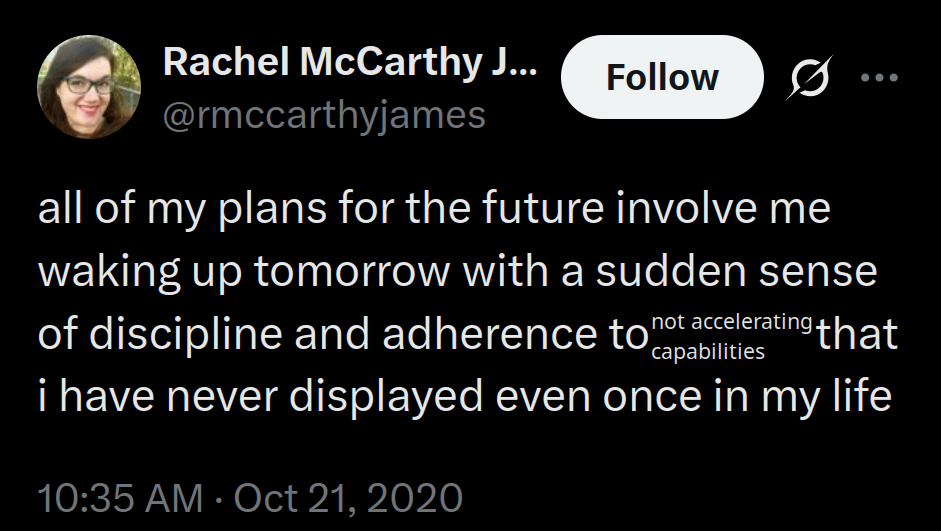In this post I will explain the most impressive argument I heard in 2024.
First, some context:
There is an ongoing debate in the bodybuilding/strength training community about how much protein you should eat while losing weight.
Some say you should eat more protein if you’re losing weight:
If you’re eating less, your body is under extra pressure to cannibalize your muscles. Therefore, you should eat more protein to cancel this out.
The standard rebuttal:
Experimental trials have found that muscle gains max out when subjects eat 0.7–0.8 grams of protein per pound of bodyweight, and that’s true both when participants are maintaining weight and when they’re losing weight. There doesn’t appear to be a difference.
And the counter-rebuttal:
Almost all research looks at novice lifters. Experienced athletes have a more difficult time gaining muscle, so losing weight will have a bigger negative impact on them, and therefore they need to eat more protein.
I used to believe this. Then I heard the most impressive argument of 2024.
I heard the argument in a YouTube video by Menno Henselmans:
It’s possible that in trained individuals there is a triple interaction effect, because that’s what you’re arguing here. If you’re saying that protein requirements increase in an energy deficit, but only in strength-trained individuals, then you are arguing for a triple interaction effect. […] That is very, very, very rare. Triple interaction effects, biologically speaking, simply do not occur much.
I didn’t understand what he was talking about. I spent two days pondering what it meant. On the third day, it finally clicked and I realized he was right.
To claim that trained lifters should eat more protein on an energy deficit, you’d need to believe that:
- Above a certain level of protein intake (0.7–0.8 grams per pound), additional protein has no effect on muscle growth.
- Most of the time, trained athletes don’t need more protein than novices.
- Novices don’t need more protein while losing weight than while maintaining/gaining weight.
- HOWEVER, (a) among trained individuals who are (b) losing weight, the ones (c) who eat more protein (beyond 0.7–0.8 g/lb) gain more muscle.
The first variable (protein intake) has no interaction with muscle growth.
The second variable (trained vs. untrained) has no interaction with muscle growth.
The third variable (losing vs. maintaining weight) has no interaction with muscle growth.
The first and second variables together (protein intake + trained/untrained) have no interaction with muscle growth.
The first and third variables together (protein intake + losing/maintaining weight) have no interaction with muscle growth.
HOWEVER, when you put all three variables together, an interaction suddenly appears—a triple interaction effect.
This is a very strange claim. If all three variables together affect muscle growth, then you would expect each variable individually to affect muscle growth. And at least you would expect two out of three variables together to affect muscle growth.
(In fact, it is mathematically impossible to construct a differentiable function f(x, y, z) that is constant with respect to x, constant with respect to y, and constant with respect to z, but not constant overall. Although you could have a function f(x, y, z) where the slope with respect to each individual variable is close to 0, but not quite 0.)
Not to say a triple interaction effect can’t occur in the real world. It could be that muscle growth does depend on each of (protein intake, training experience, calorie deficit), but the relationships are so weak that the studies failed to pick them up.
But if you believe the studies’ results are correct, then it seems difficult—maybe even impossible—to still believe that trained lifters need to eat more protein while on a calorie deficit.
***
This was the best argument I heard in 2024 because:
- If you think about it, it’s obviously correct. It changed my mind as soon as I understood it.
- It’s difficult to come up with. (I’ve never heard anyone else make this argument.)
Notes

